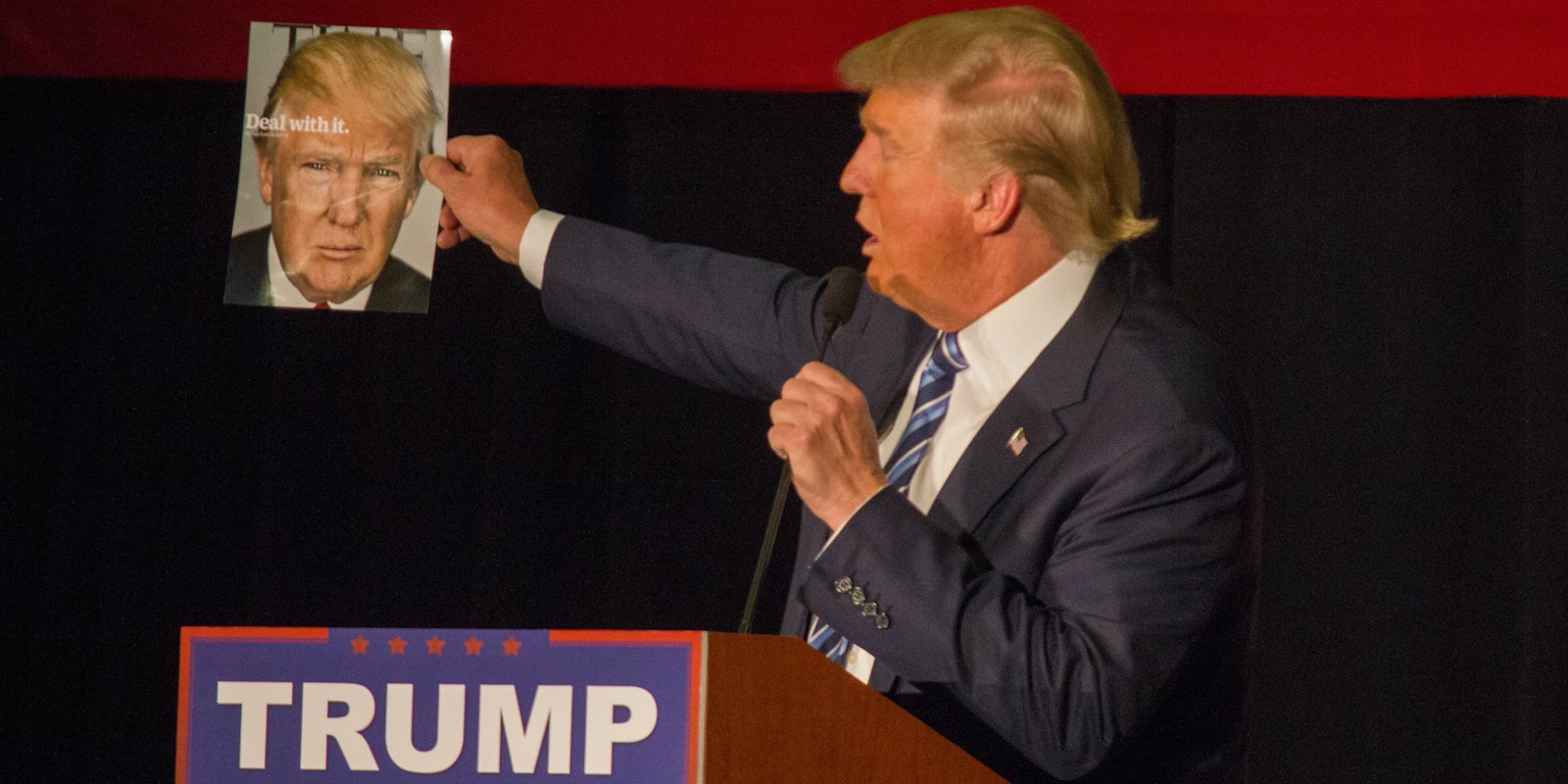Did you love Michael Wolff’s explosive and damning Trump tell-all Fire and Fury? Do you need more salacious details about White House palace intrigue? Are you excited for the news cycle to devolve into an endless, recursive loop where we do the same hand-wringing again over the exact same stories while nothing of import gets accomplished?
Well, well, well, it’s time for Media Madness: Donald Trump, The Press, And The War Over The Truth, by Howard Kurtz, which promises that the next three weeks will be an exact carbon copy of the first three weeks of 2018.
In a snippet obtained by the Washington Post, we are taken inside Trump’s shocking decision to institute a transgender ban on the Armed Forces. Will it make you think the president is a bold, decisive leader or a capricious and callous man?
Yes!
In late July, the White House had just finished an official policy review on transgender individuals serving in the military and President Trump and his then-chief of staff, Reince Priebus, had agreed to meet in the Oval Office to discuss the four options awaiting the president in a decision memo.
But then Trump unexpectedly preempted the conversation and sent his entire administration scrambling, by tweeting out his own decision — that the government would not allow transgender individuals to serve — just moments later.
“ ‘Oh my God, he just tweeted this,’ ” Priebus said.
(Apropos of nothing, just tweeting it apparently runs in the family.)
However, there is one twist to this book. Unlike Fire and Fury, which was almost instantly discredited by conservative leaders, Media Madness was written by one of their own. Kurtz is the host of Media Buzz on Fox News.
In the book, Kurtz says Trump’s senior aides have a term for behavior like the transgender tweets, where the president seems to impulsively and recklessly tweet something that upends agreed upon policy.
“Defiance Disorder,” they called it.
In the book, Kurtz details one of Trump’s most infamous defiance disorders, where he spent a Saturday morning calling his predecessor, President Barack Obama, a “bad or sick” guy for allegedly wiretapping Trump Tower.
Early in the administration, Kurtz describes White House aides waking up one Saturday morning in March, confused and “blindsided,” to find that Trump had — without any evidence — accused former president Barack Obama on Twitter of wiretapping him during the campaign.
“Nobody in the White House quite knew what to do,” Kurtz writes.
Priebus watched as his phone exploded with email and text messages, according to the excerpts. “Priebus knew the staff would have to fall into line to prove the tweet correct, the opposite of the usual process of vetting proposed pronouncements,” Kurtz writes. “Once the president had committed to 140 characters, he was not going to back off.”
Whether this will be used to reinforce the narrative shaped by Wolff’s book is unclear. The Post says the snippets they obtained show a White House that was in better shape than how Wolff portrayed it, but still beholden to the whimsical nature of the president.
While Kurtz at times seems to offer a more flattering portrayal of the West Wing staff than some other media accounts, he also captures a White House struggling to perform basic tasks and advisers reacting to the whims of a hard-to-control president.
By Kurtz’s telling, Trump’s approach to replacing Priebus as chief of staff with John F. Kelly, who was then homeland security secretary, was also not exactly standard operating procedure. “Typically, Trump announced the decision without telling Priebus and without having made a formal offer to Kelly,” he writes.
Media Madness will be released on Jan. 29.


